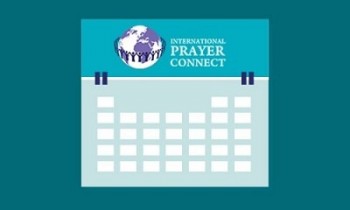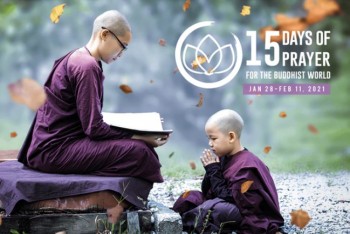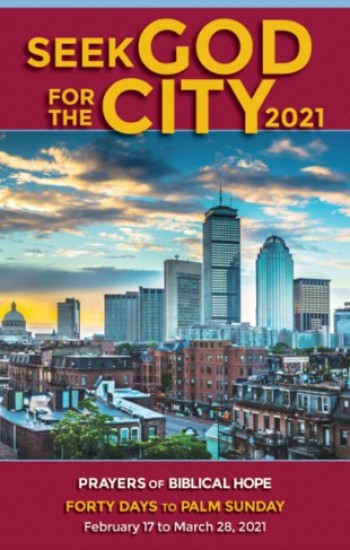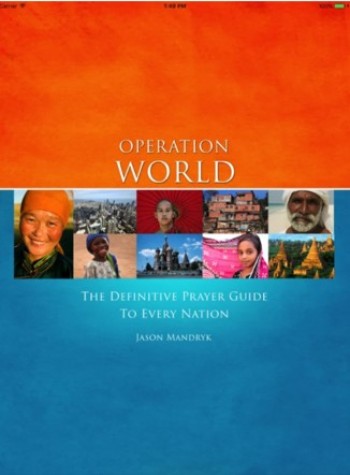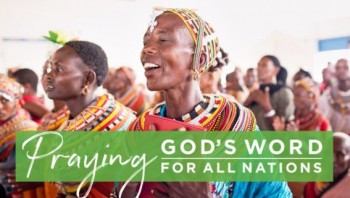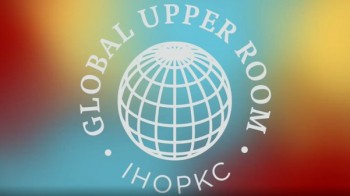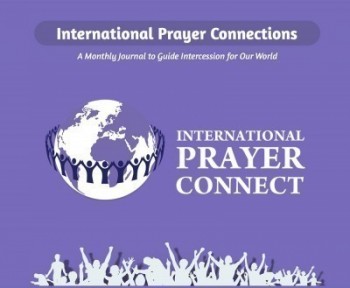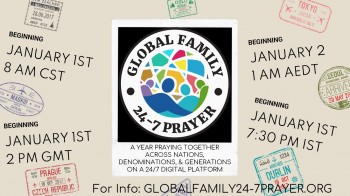
Super User
Lorem ipsum dolor sit amet, consectetur adipisicing elit, sed do eiusmod tempor incididunt ut labore et dolore magna aliqua. Ut enim ad minim veniam, quis nostrud exercitation ullamco laboris nisi ut aliquip ex ea commodo consequat. Duis aute irure dolor in reprehenderit in voluptate velit esse cillum dolore eu fugiat nulla pariatur
God at work regardless…
Thank you to all our supporters and subscribers, both directly and through IPC Connections - for your prayers and financial support across what has been such a tumultuous year. We pray God’s continued blessings upon you and your families.
Kazakhstan has recently become our 70th enlisted country where The Prayer Covenant is being used among children and youth! This means that 7 million children in 70 nations have now been impacted with the Prayer Covenant and we are still counting!
 The Last Quarter Evangelism initiative, a partnership between The Prayer Covenant, GO Decade and All Africa Baptist Youth Fellowship ran from October through to the end of December 2020.
The Last Quarter Evangelism initiative, a partnership between The Prayer Covenant, GO Decade and All Africa Baptist Youth Fellowship ran from October through to the end of December 2020.
We praise God for over 14,489 churches in 36 nations mobilizing 264,771 “missionaries”, 85% of which are children and youth to share the gospel with 5,808,380 persons resulting in 301,907 decisions to follow Jesus.
Watch the LQE Video HERE!
Israel is a 12-year-old boy who shared his powerful testimony:
 ‘2020 has been the best year of my life because I have discovered how beautiful it is to be a child of God. I found a great joy in sharing the gospel with my classmates and sharing the gospel is now become part of my life whether the church plans an outreach or not.’
‘2020 has been the best year of my life because I have discovered how beautiful it is to be a child of God. I found a great joy in sharing the gospel with my classmates and sharing the gospel is now become part of my life whether the church plans an outreach or not.’
‘I had the opportunity to pray for adults and many people much older than myself. They were surprised to see my commitment and the way I shared the gospel with others.’
‘LQE helped me to experience God in a new way in my life.’
25 major language translations of the Prayer Covenant children’s resources are free to download HERE.
Dear Heavenly Father,
Thank you for the joy of loving, following and serving You. Thank you for your hand of protection upon our ministry partners this past year. Thank you for the promise that as your Word goes forth it will not return void.
 We ask your blessing upon all who receive this report.
We ask your blessing upon all who receive this report.
Thank you for their partnership in the gospel.
Continue to bless and keep them in your loving care.
In Jesus name, Amen.
Our partner in Burkina Faso sent this video of their children’s choir singing The Prayer Covenant Song. We trust you will be blessed and encouraged as you watch it, as we have been.
We have much to celebrate in spite of Covid-19, and thank God for sustaining the work.
Ask me and I will make the nations your inheritance. Psalm 2:8
Candy Marballi | This email address is being protected from spambots. You need JavaScript enabled to view it. | www.theprayercovenant.org
Global Family 24/7 365 Online Prayer
https://www.globalfamily24-7prayer.org/
15 Days of Prayer for The Buddhist World - Jan 28th and Feb 11th, 2021.
https://worldprayerguides.org/15-days-of-prayer-for-the-buddhist-world/
Forty Days to Palm Sunday. (Feb 17 - March 28) "Seek God for the City"
https://www.worldchristian.com/product/sg21
The Jesus Fast (1 March – 9 April)
www.thejesusfast.global/
4th March - Honouring John Robb
Email: This email address is being protected from spambots. You need JavaScript enabled to view it.
10 Days of Praise & Prayer (13 – 22 May 2021)
www.10days.net
Movement for African National Initiatives – Abidjan, Ivory Coast, 8-12 March 2021
https://maniafrica.com/category/prayers/
World Prayer Together (1st May)
www.worldprayertogether.com
The March for Jesus (22 May 2021)
www.themarchforjesus.org
Global Day of Prayer & broadcast (including commissioning to GO) (23 May 2021)
www.globalvoiceofprayer.com/global-day-of-prayer/
GO 21 / Global Outreach Day (29 May 2021)
www.go2020.world/en/go21
GO Decade update (2020 – 2030)
www.go2020.world/en/decade
Hope Movement – 90 Days of Hope / Global Day of Hope (June – August 2021)
www.go2020.world/en/go2020continues
 UPRising Events Calendar
UPRising Events Calendar
GLOBAL UPRISING Manila, Philippines, Nov 2021
https://www.facebook.com/UPRISINGPhilippines/
The annual Buddhist World Prayer Focus is calling Christians and churches worldwide to take 15 days to learn about and pray for our world’s Buddhist friends between Jan 28th and Feb 11th, 2021.
The informative prayer guide booklets will help Christians to know how to pray for the people(s) growing up within this major and truly diverse world religion.
We recognize that Buddhism is an extraordinarily complex and often confusing worldview. At the same time, as Christians, we long that all the world’s people(s) will have an opportunity to freely see, hear and understand the grace of God incarnated in Jesus Christ.
To this end we inform ourselves, pray for and want to support opportunities to make that grace known also within the world’s Asian Communities.
The guide is available in these languages: English, Spanish, Portuguese, Simplified Chinese, Arabic, Hindi, Russian, German, French, Thai, Korean and Vietnamese
Get your copy of the 15 Days Buddhist World Prayer Guide now and join this global movement!
Guides available here: https://worldprayerguides.org/15-days-of-prayer-for-the-buddhist-world/
This is an annual 40-Day call to prayer that provides a way to pray God's purposes for our cities with prayers of hope from scripture.
The prayers in the Seek God 64-page, full color prayer guide booklet will lift our prayers beyond our own concerns. As we seek God's face, we will ask Him to do things on a city-size scale--to bring spiritual awakening to our communities.
The booklet contains newly written topics and prayers to help unite and focus prayer through the 40 days leading to Palm Sunday. This booklet is a proven resource that unites and encourages churches in persistent prayer for breakthroughs in their communities. Quantity discounts make it possible to equip many in your church or ministry.
Some helpful features of Seek God For The City 2021
- Strengthens what you are already doing. No complicated program to organize or meetings to schedule.
- Unites prayer throughout your church. An attractive, easy-to-use tool that can help unite prayers between many churches throughout an entire community.
- Lifts prayer from private or trivial matters. Helps your people learn to pray for what matters most by directing attention toward what God is doing in the lives of people throughout your community.
- Builds the confidence of everyday believers to help them pray with clarity, authority and relevance as they learn to pray in keeping with scripture. Involves everyone in your church family, not just a “prayerful elite.”
- Opens a great way to pray toward Easter. For those of liturgical streams, it augments the Lenten season with a marvellous blend of repentance and intercessory hope. Those of other streams find that it lifts attention toward Christ’s visitation at Palm Sunday. The calendar concludes on Palm Sunday, leaving everyone prepared for Easter week without crowding the schedule with extra activity.
Order it here: https://www.worldchristian.com/product/sg21
Want to join the global prayer movement? Operation World (OW), the definitive global prayer handbook, has been used by more than a million Christians to pray for the nations.
Now as a mobile app you can receive reminders to pray for the “country of the day,” research statistics on each country and read the in-depth prayer request and praise reports given for each country of the world.
OW is widely regarded as the definitive volume of prayer information about the world and is the recipient of the ECPA Gold Medallion Award for Excellence in Evangelical Christian Literature.
Download on iOs: https://apps.apple.com/us/app/operation-world/id1181609244
Download on Google Play: https://play.google.com/store/apps/details?id=org.missionaldigerati.operationworld&hl=en&gl=US
One of IPC’s key partners, Seed Company, has provided a new interactive prayer resource for you!
Learn 5 prayer habits to help you pray effectively for Bible translation. This 5-day devotional will enrich your spiritual walk and impact eternity through your prayers.
In what ways has the Bible changed your life? When life hits us hard, we find direction and solace in Scripture.
But what if the Bible was not in your language? That’s the reality for over 1 billion people today.
Join this 5-day plan where you can partner your Scripture reading with simple and effective ways to pray for people without the Bible.
It’s available in the YOU Version Bible App – or HERE
Gathering the Church for 2021
Join a “Global Upper Room” event 12/31 all day into the new year as IHOPKC and leaders in the Body of Christ from every time zone across the globe join together to conclude the year and usher in 2021 with a strong shout of praise, thanksgiving, humble confession, prophetic prayer, and bold declaration.
From Oceania across Asia, the Middle East, Europe, and spanning North and South America, we envision 24 hours of non-stop worship and intercession connected by technology in a ceaseless program of coordinated prayer.
At the same time, we are urging thousands of groups to coordinate their own communities for two to six hours on New Year’s Eve leading up to midnight that we may usher in New Year’s Day around the world with our hearts postured in unity, humility, and faith. We want to thank God for His leadership of history and enter the new year with expectation for mighty moves of the Holy Spirit in our day in every nation.
Let us re-enact Acts 1:12–14 unto Act 2 and Acts 4.
From the Chinese church in Taiwan to the intercessions of Herrnhut, Germany, and its Moravian Lampstand, the International House of Prayer in Kansas City wants to serve the Body of Christ with a historic moment of prayer and harvest that spans every time zone.
More info, livestream and sign up HERE
Ahead of the January edition of the monthly IPC Connections email, we would like to bring to your attention three significant prayer initiatives that are happening this next 24 hours – that we would not want you to miss!
The first is a major partnership between many ministries around the world in a Global Family 24/7 Prayer Room, that launches at 16:00HRS Jerusalem time on New Year’s Day.
As we are writing this, the sun is rising in the East and lots of people are praying in the new year as part of the New Year’s Day Sunrise Prayer Relay. It is not too late for many of us to take part!
Many ministries including IPC are joining with our friends at IHOP Kansas for their Global Upper Room which aims to conclude the current year and usher in 2021 with a strong shout of praise, thanksgiving, humble confession, prophetic prayer, and bold declaration.
Details of each of these projects follow below.
We would wish all of our partners in prayer every blessing for the year ahead.
Dr Jason Hubbard – Director
International Prayer Connect
http://www.ipcprayer.org
January 1st 2021 marks the launch of the ‘Global Family’ Online 24/7 Prayer initiative that aims to unite nations, denominations and generations in a year of continuous prayer and worship.
Gifted Prayer leaders and worship teams from every continent will be leading the 168 hourly ‘Zoom’ sessions each week in several languages. The meetings will be accessible to anyone, anywhere with an internet connection.
The project was founded by Dr Jason Hubbard (www.ipcprayer.org) and Jonathan Friz (www.10days.net) in 2020 along with a dedicated, multi-skilled team representing many different ministries and networks from around the world.
Jonathan Friz said "The ability to pray together as the global church in the same space is brand new - for the first time in history we can approximate the sound of that great multitude gathered before the throne from every nation and language, declaring "Salvation belongs to our God, and to the Lamb!""
 "We would invite individuals, groups, Churches, ministries, anyone! - who shares our vision to join us, whether it’s for a short while or for many hours each week, in the presence of God, alongside fellow-believers from across the world. "
"We would invite individuals, groups, Churches, ministries, anyone! - who shares our vision to join us, whether it’s for a short while or for many hours each week, in the presence of God, alongside fellow-believers from across the world. "
Launch Service…
The Global Family 24-7-365 will begin January 1st 2021 at 16:00 Jerusalem time, 8 AM CST, 2 PM GMT. The launch will include a two hour special “church” service. The first full hour will be focused on coming together as a Global Family and praying together. The second hour will be a teaching hour. After the church service ends, regular facilitated hourly sessions will begin.
Praying for the Unreached…
One of the primary focuses of the Global Family will be prayers for the unreached. Jason Hubbard said “We are convinced that the Crux of the Great Commission and the reaching of every person by 2030 in the Go Decade needs to especially focus on the Unreached People Groups. They are the ethne of Matthew 28, of which there are about 5000 such people groups still separated by language and culture with an average of only one believer per thousand. They need cross-cultural efforts integrated with focused, ongoing prayer to see indigenous gospel movements established in them.”
“As the church worldwide continues to work together to mobilize prayer and targeted mission efforts, it will be possible with the Lord’s supernatural help to see bible based, Christ exalting, Spirit-led churches planted in each one of these people groups by 2030! Let’s Go and Count to Zero!”
Prayer Leader Opportunity…
There are 50 or so hourly sessions available to would-be leaders in the weekly schedule as we go to press, and they are steadily being filled. Prayer Leaders who would like to find out more about taking part are invited to visit the Leaders page on the website.
"The Father has a plan to answer Jesus' prayer in John 17,” said Jonathan. “ Prayer meetings like this that bring the family together in the presence of the Holy Spirit are a key part of His plan. When the family comes together to glorify Jesus, the Father loves to pour out His glory on us all. Make no mistake, Jesus gets what He prays for!"
How to join…
To join the Global Family 24-7 Prayer Room, please register HERE. The meetings are all accessed through an online ticketing system, apart from the launch service which will be also be live-streamed.
More at: http://globalfamily24-7prayer.org/

